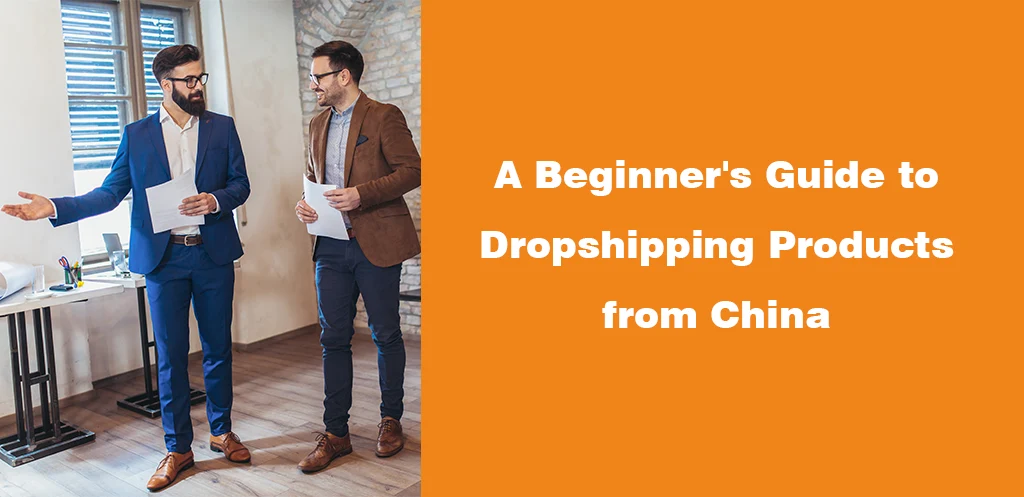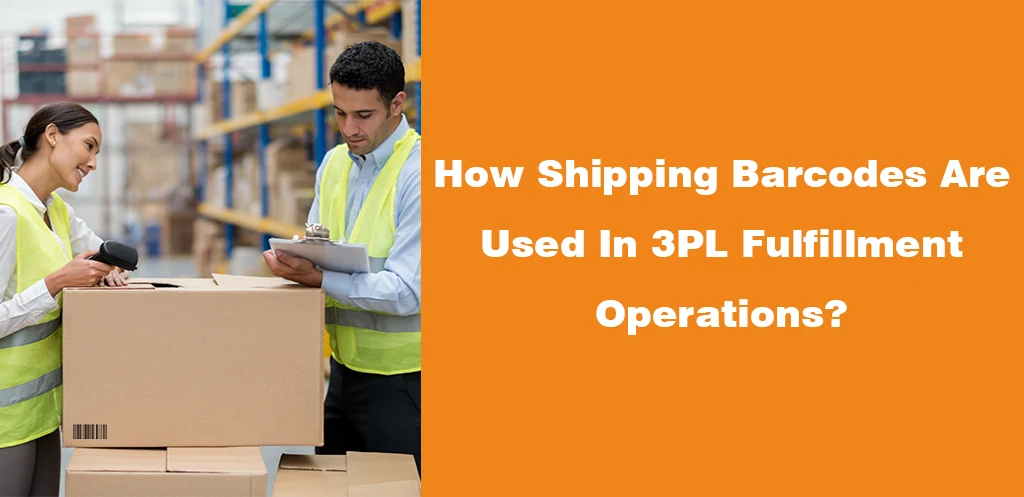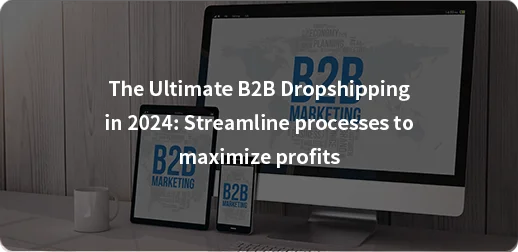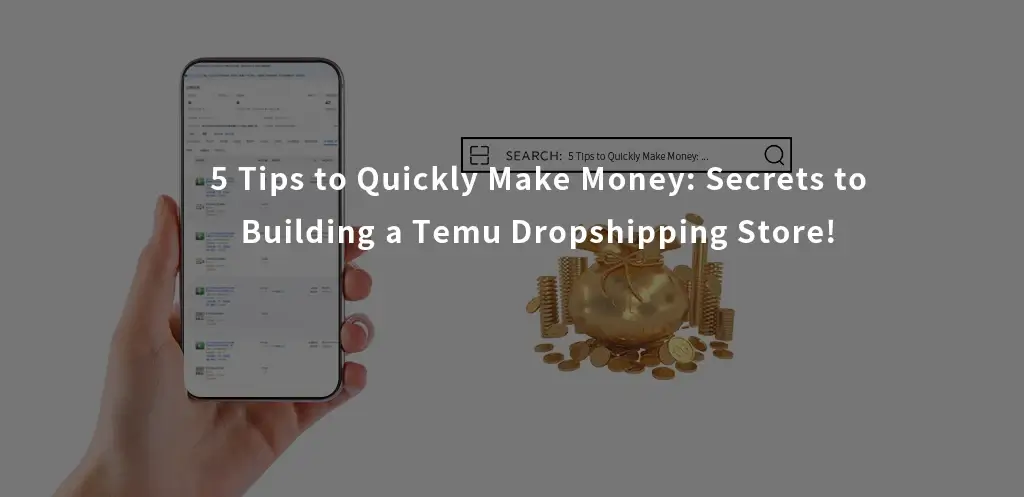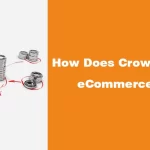As a fellow eCommerce store owner, you probably know this feeling all too well—the constant battle to boost your online presence, the endless search for strategies that deliver on their promises of more traffic and better conversion rates.
But have you ever considered the power of bidding on branded keywords?
You see, even if you’re at the top spot in organic search results, there’s something irresistibly effective about those paid search ads popping up right when someone searches for your brand.
And I can tell you, with all the certainty of someone who’s tested it firsthand, that this strategy is worth your time and investment.
In this blog, we’re diving into the hows and whys of bidding on branded keywords, and trust me, you won’t want to miss out on these insights.
What Is A Branded Ad?
So, what is a branded ad?
Imagine you’re scrolling through Google, and you type in the company link ‘Globallyfulfill‘ because you’re looking for a top-notch fulfillment partner. Immediately, an ad for Globallyfulfill pops up.
This is the power of a branded ad in action. It’s as straightforward as it sounds.
Businesses bid on keywords related to their brand to ensure they appear right at the top of your search results, clear as day when you’re looking for them.
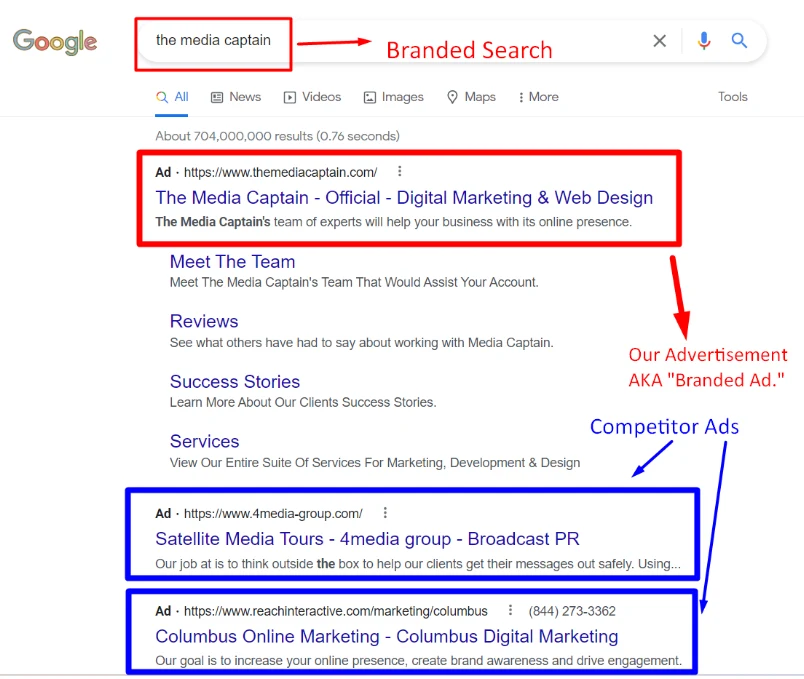
So, why does this matter to you, an eCommerce store owner? Well, people searching for your brand are not just window shopping; they’re on a mission.
They know your name, they’re interested in what you offer, and they’re ready to engage.
Google favors these types of ads. Why? Because they’re highly relevant to the searcher’s intent.
If someone is specifically searching for your brand, showing them your ad isn’t just helpful; it’s exactly what Google wants to do.
Since it’s your brand, your ad scores highly on relevance, making your cost-per-click cheaper. It’s like Google gives you a high-five for making your job easier.
Real-life practical example:
Let’s start with an example to bring this to life.
Imagine you’re in the market for a new mattress. You’ve heard great things about Tempur-Pedic mattresses; they’re often hailed as the best in the industry. So, you go to Google and type in “Tempur-Pedic mattress.” But here’s where things get interesting.
The very first ad that pops up isn’t for Tempur-Pedic. Instead, it’s an ad from Nectar Mattresses, boasting “the last mattress you’ll ever need to buy” alongside a tempting offer: $399 off and a “Forever Warranty.”
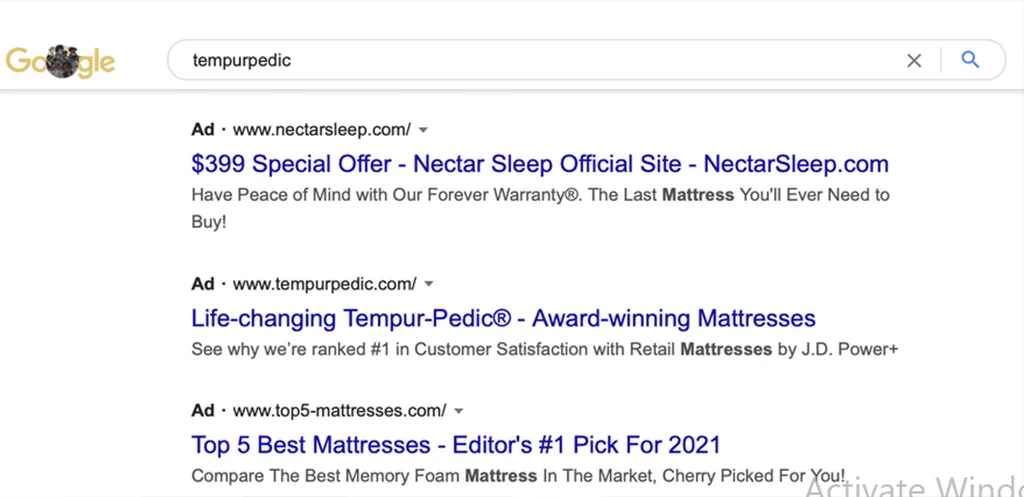
This scenario perfectly illustrates the power and necessity of bidding on branded keywords. Nectar Sleep, in this case, managed to snag the top ad spot for Tempur-Pedic’s branded keyword.
They didn’t just stop at securing the spot; they also threw in an enticing offer right in the headline of their ad, making it even more compelling than what Tempur-Pedic had to offer.
Given that their ad appeared right below Nectar’s, it just shows that Tempur-Pedic did bid on the keywords associated with their brand. However, in this instance, they dropped the ball. They allowed Nectar Sleep to outshine them, both in ad placement and appeal.
It’s a classic case of a competitor potentially siphoning off business right from under Tempur-Pedic’s nose, simply because their branded keyword strategy was sharper.
It raises a valid question: why should you have to spend money to rank for your company name? It’s a frustrating reality of the digital advertising world, one that can be chalked up to Google’s auction system.
This Tempur-Pedic example is a textbook case of why treating your brand keywords with the care and strategy they deserve is critical.
Many advertisers fall into the trap of setting and forgetting their brand-term ads, crafting generic messages, and not monitoring their impression share closely enough.
And when that happens? Your competitors are more than happy to swoop in and “eat your lunch.”
If there’s one thing I’m certain of, it’s this: if someone is directly searching for my company, I want my ad to be the first thing they see every single time.
Should You Bid on Your Brand Name with PPC Ads?
Understanding the Debate
The question of whether to bid on your brand name with PPC ads might seem trivial at first glance, akin to choosing between coffee or tea. However, for eCommerce store owners, this decision is critical.
Understanding the debate is essential. For instance, Globallyfulfill might bid on their brand name to prevent a competitor from appearing first in search results when their potential clients require reliable fulfillment services.

The Importance of Visibility and Dominating the Search Results
Bidding on your brand name is like placing a digital billboard on the main street. It ensures that your store is the first thing potential customers see, even if they are already looking for you. This approach controls the narrative, ensuring your message is front and centre.
When you bid on your brand name, you’re essentially securing your spot at the top of the search engine results page (SERP). It’s a powerful way to claim your space and make sure competitors don’t overshadow you.
Unlike our Tempur example above and Geico example below, you always want to make sure you’re at least populating ahead of your competitors under your name.
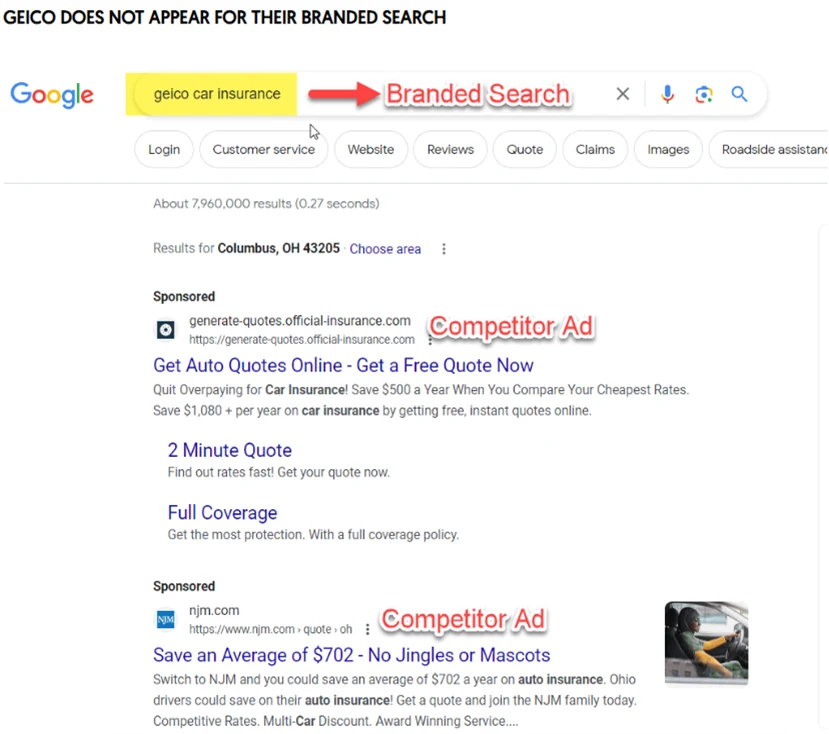
Controlling Your Message
When you bid on your brand name, you control the advertising message. This is your chance to highlight sales and unique selling points, or simply reassure customers they’re in the right place. It’s a proactive step to manage how your brand is presented in search results.
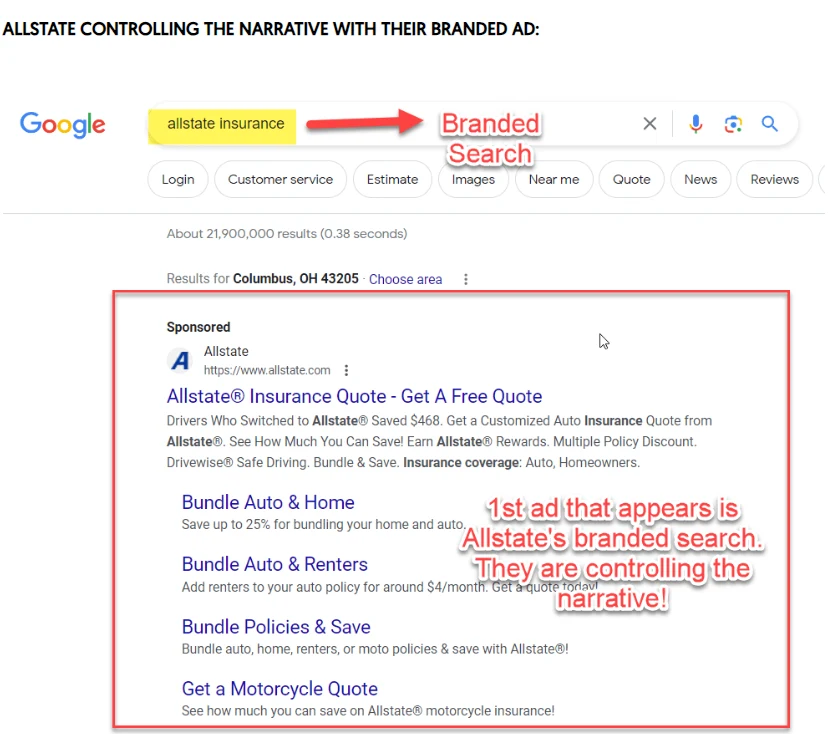
Cost-Effectiveness of Branded Keywords
The cost per click (CPC) for branded keywords is generally lower due to their high relevance. This is because these keywords are highly relevant to your business, leading to better ad performance and lower costs.
This means your advertising budget is spent efficiently, targeting users who are already interested in your brand. It’s an investment with a high potential return.
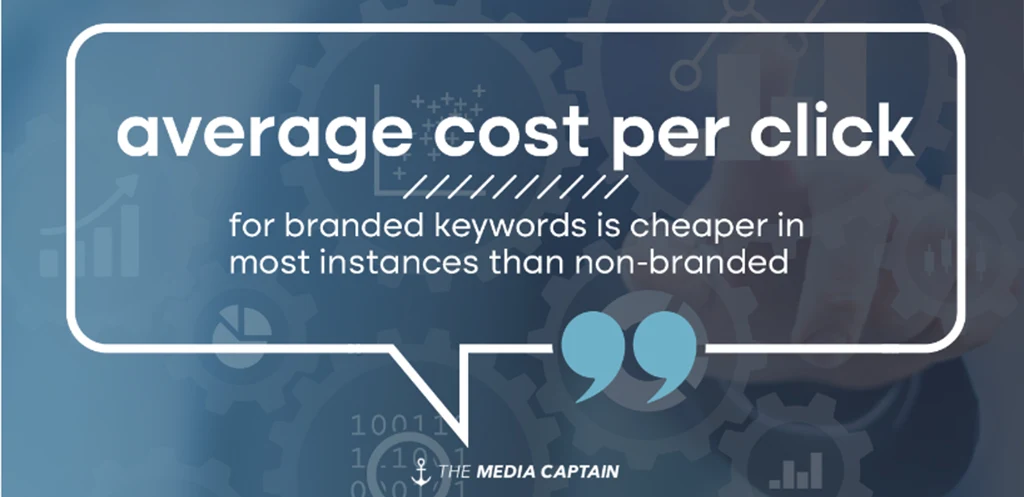
Fine-Tuning with Negative Keywords
Not all searches for your brand name are equal. Some users may be looking for customer service or just browsing. Using negative keywords allows you to refine your ad targeting, ensuring your ads appear in the most relevant searches.
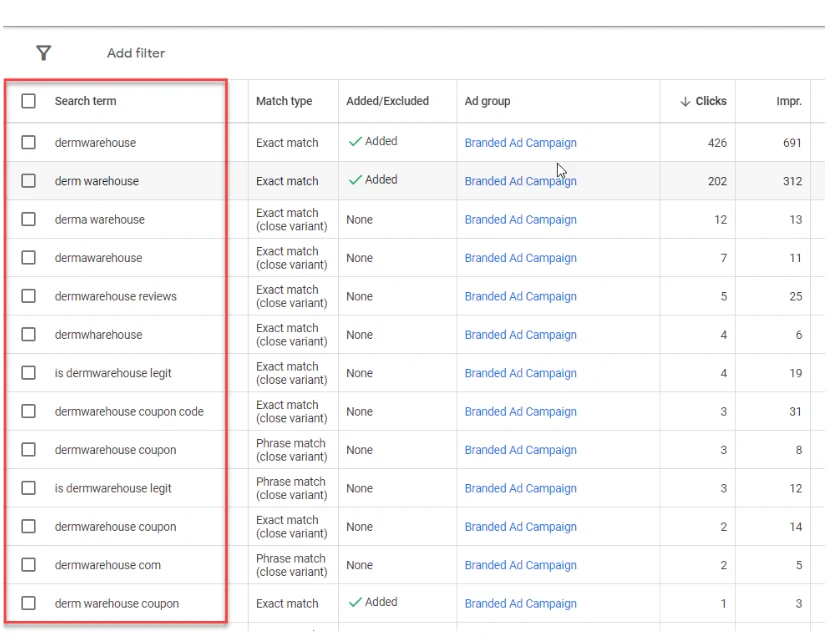
The Counterargument: Paying for Your Own Brand
Some argue that bidding on your own brand name is unnecessary, believing that interested customers will find you without paid ads. This perspective views the practice as potentially wasteful, emphasizing the importance of weighing costs against benefits.
Making the Decision
Deciding whether to bid on your brand name boils down to a simple concept: ensuring visibility and control in the digital marketplace. If safeguarding your brand’s online presence and directing the customer journey are priorities, then PPC ads for your brand name can be a valuable tool.
The 6 Rules of Bidding on Branded Keywords
1. Bid on Your Own Branded Keywords
Why It’s Important: Bidding on your branded keywords is crucial because it ensures that when someone searches for your brand, your ad appears at the top. This prevents competitors from hijacking potential customers who were specifically looking for you.
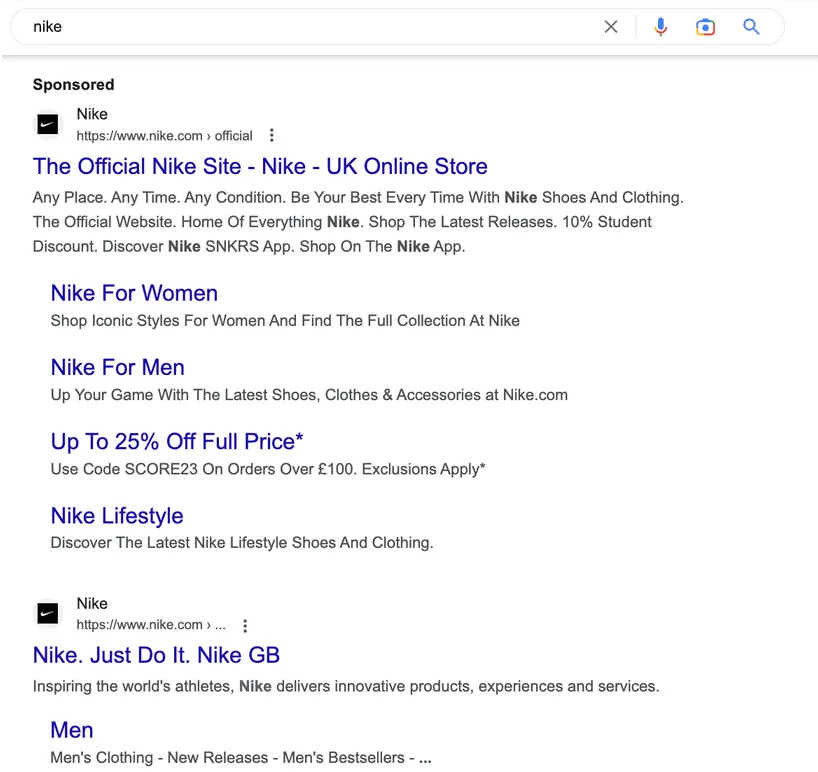
How to Do It: Use Google Ads to set up a campaign targeting your brand name as the keyword. Set a reasonable bid based on the suggested bids by Google, but remember, due to the high relevance, your cost per click (CPC) will typically be lower.
What Happens If You Don’t Do It Well: If you neglect this, competitors might bid on your branded keywords, capturing traffic meant for you, which could lead to lost sales.
Scenario: Imagine you run “Zara’s Boutique.” You decide not to bid on “Zara’s Boutique” as a keyword. A competitor, seeing the opportunity, bids on your brand name, and their ads start appearing when your potential customers search for your store. Now, instead of landing on your site, customers might end up visiting your competitor’s site.
2. Monitor Your Bids and Performance
Why It’s Important: Regular monitoring allows you to adjust bids for optimal positioning and performance, ensuring you’re not overspending for your ad to appear.
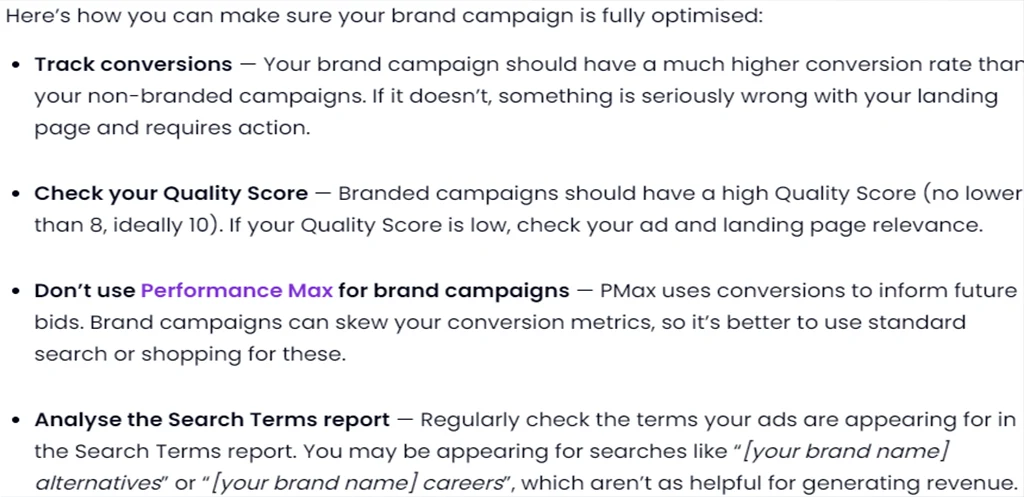
How to Do It: Use Google Ads’ built-in analytics to review the performance of your branded keyword campaigns. Look for metrics like click-through rate (CTR) and conversion rate. Adjust bids based on performance and competition.
What Happens If You Don’t Do It Well: Without regular checks, you could either be spending too much for no extra benefit or losing your top ad position to competitors.
Scenario: You’ve set up a bid for “Zara’s Boutique,” but after a week, you notice the CTR has dropped. You investigate and find out a competitor has started bidding higher on your brand name. You adjust your bid slightly above theirs, ensuring your ad remains at the top, and watch as your CTR improves again.
3. Highlight Your Unique Selling Proposition (USP) in Ad Copy
Why It’s Important: Your USP sets you apart from competitors. Highlighting this in your ad copy can make your ad more appealing to potential customers.
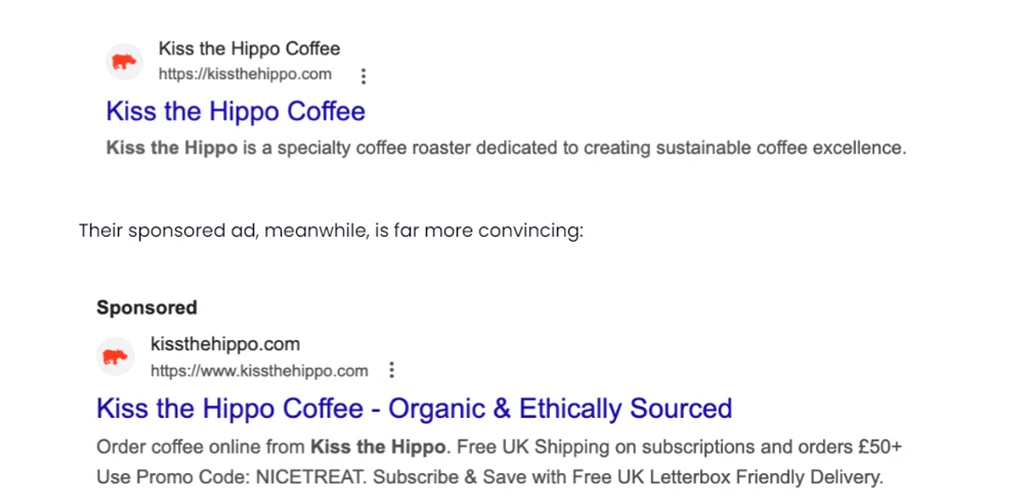
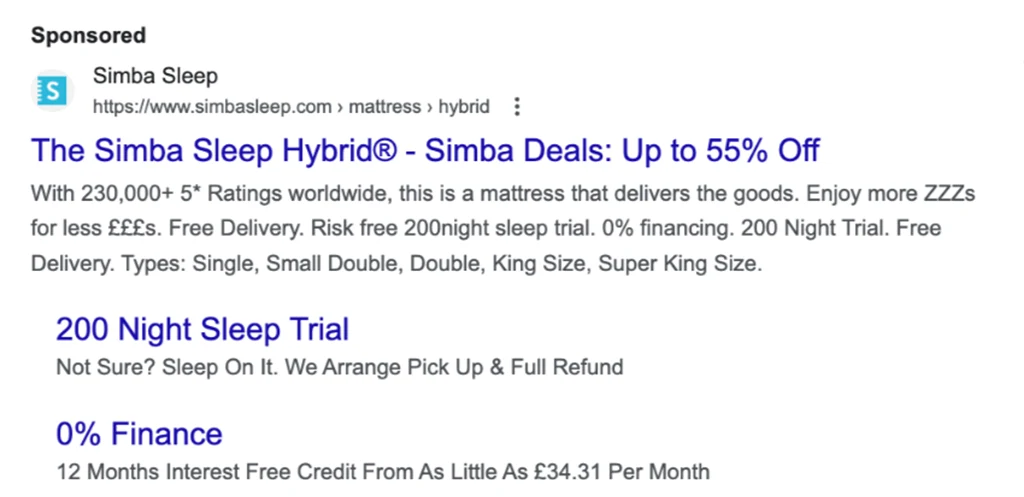
How to Do It: Identify what makes your business unique (e.g., free shipping, exceptional customer service, exclusive products) and include this in your ad copy. Use A/B testing to find the most compelling way to present your USP.
What Happens If You Don’t Do It Well: If your ad doesn’t communicate why customers should choose you, they may overlook your ad in favour of one that does.
Scenario: For “Zara’s Boutique,” you identify that offering custom fittings is your USP. You create two versions of your ad, one highlighting “Custom Fittings Available” and another saying “Fits Like a Dream.” You run both, find the latter performs better, and decide to use that phrasing moving forward.
4. Bid on Competitors’ Branded Keywords Cautiously
Why It’s Important: Bidding on competitors’ branded keywords can put you in front of customers looking for similar products or services. However, it needs to be done tactfully to avoid potential backlash or legal issues.
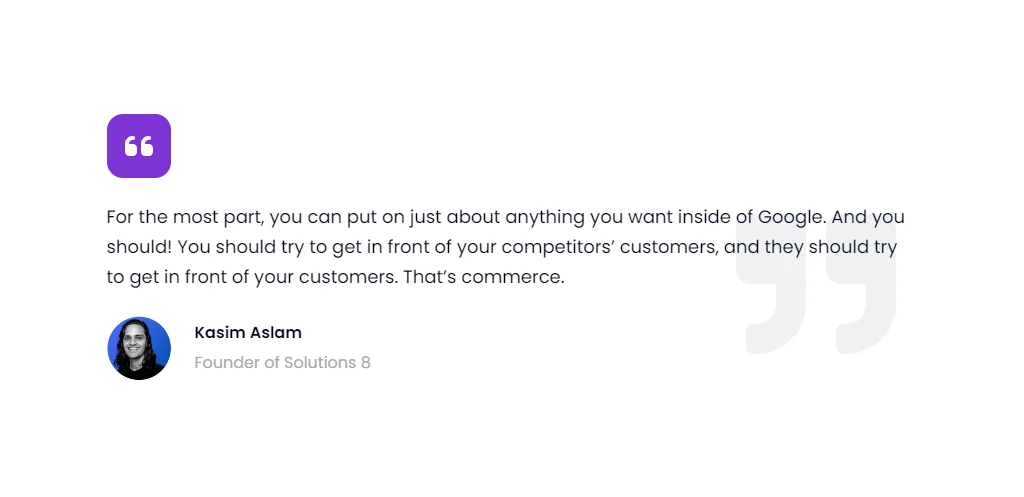
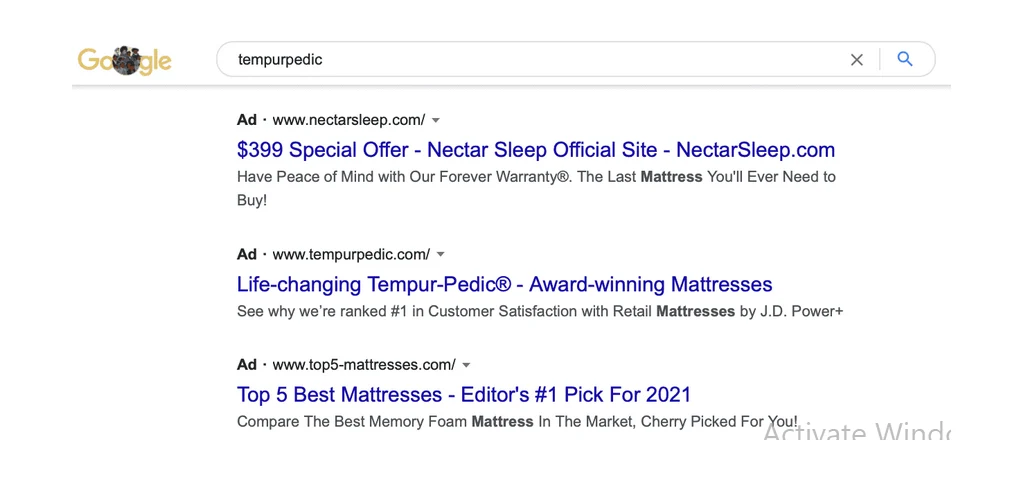
How to Do It: Identify competitors whose customers you can provide value to and bid on those branded keywords. Ensure your ad copy focuses on what you offer without directly comparing or mentioning your competitor.
What Happens If You Don’t Do It Well: If you’re too aggressive or misuse your brand name, it could lead to a negative perception of your brand or legal challenges.
Scenario: You notice “Lara’s Boutique” is a competitor with a similar target market but no custom fitting service. You bid on “Lara’s Boutique” as a keyword, with ad copy focusing on your unique offering of custom fittings without mentioning Lara’s directly.
5. Avoid Overbidding on Branded Keywords
Why It’s Important: While branded keywords are valuable, overbidding on them can waste your ad budget, which could be used elsewhere.
How to Do It: Set a budget cap for your branded keyword campaigns and use automated bidding strategies to adjust bids without exceeding your maximum cost per acquisition (CPA).
What Happens If You Don’t Do It Well: You risk spending more on clicks than they are worth, diminishing your return on investment (ROI).
Scenario: After setting up your bids, you decide on a max CPA of $5 for “Zara’s Boutique.” Google Ads’ automated bidding helps keep your bids competitive without exceeding this limit, optimizing your spend.
6. Use Negative Keywords Wisely
Why It’s Important: Negative keywords help prevent your ad from appearing in unrelated searches, saving your budget for more qualified leads.
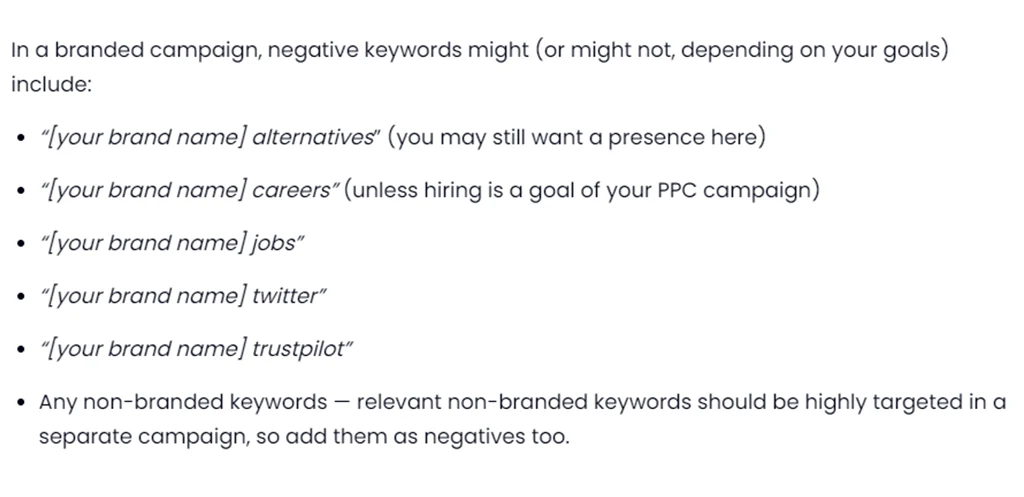
How to Do It: Regularly review the search terms triggering your ads. Add irrelevant terms as negative keywords to refine your targeting.
What Happens If You Don’t Do It Well: Your ads might appear for irrelevant searches, wasting your budget on clicks that are unlikely to convert.
Scenario: You notice “Zara’s Boutique” ads are showing up for searches looking for “Zara’s Boutique jobs.” You add “jobs” as a negative keyword, ensuring your ads only appear for those looking to shop, not for employment.
By following these rules, you’ll navigate the PPC world more effectively, ensuring your branded keyword strategy is efficient and cost-effective. Remember, the goal is to attract the right traffic, not the most traffic, and these guidelines will help you achieve just that.
Conclusion
By following these guidelines, you’ll be able to more effectively utilize PPC advertising to support your business goals, drive relevant traffic to your site, and increase conversions. Keep your approach data-driven, be prepared to adjust strategies based on performance metrics, and always focus on the value you offer to your customers.

